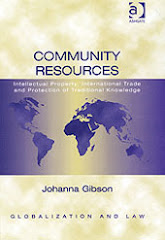
Access to patented seed for research and development has been very much in the news of late. Of course, it is not the patent necessarily rendering a product inaccessible for research, but the agreements licensing the seed.
27 representatives of the research community and industry met in Ames, Iowa, 30 June 2009, to consider the issues surrounding access to research in the seed industry. The meeting generated discussion on a set of principles to support public sector research on commercial, patented seed products. The final version of these principles will be presented to the major industry bodies for approval in September (going to the Biotechnology Industry Organization (BIO) 10 September, and to the American Seed Trade Association (ASTA) Executive Committee of the Board of Directors, 17 September). Their implementation by the industry will be of interest.
Although agricultural biotechnology is a significant commercial and innovative bonus to the seed industry, its promise for food security in the developing world is less certain and more socio-political. Wilhelmina Quaye argues that agricultural biotechnology is a socio-cultural issue. Writing in Business Daily, Quaye says in order to improve the use of biotechnology for food security and advancement in developing countries, the communities themselves must be involved in its implementation and development: "it must improve their capacity rather than create ties of dependency." Quaye also notes in Africa in particular the fear over losing traditional ways of farming: "The bottom line is that anyone developing biotechnologies must respond effectively to the intended users' needs and aspirations ... To do this, biotech agendas must consider the socio-cultural realities in Africa."
In the United States, the real significance of traditional agricultural knowledge and practices is starting to be recognised. The US Department of Agriculture (USDA) recently released the 2007 Agricultural Census, which is the first to count all individual Native Amer ican farmers on reservations across the country. Native Americans in Arizona, for instance, have been found to operate more than half that State's farms and ranches. And the numbers are expected to be even higher. Despite efforts to publicise the Census widely, including meeting with tribal leaders to discuss the process, individuals were inevitably missed. Farms are generally smaller than the national average, but nearly the entirety of the Dine reservation is under cultivation or grazing. One Hopi farmer, Richard Kuwunvana (pictured at right), says, "Our family has farmed this land forever. We're part of the corn, and it's part of us."
ican farmers on reservations across the country. Native Americans in Arizona, for instance, have been found to operate more than half that State's farms and ranches. And the numbers are expected to be even higher. Despite efforts to publicise the Census widely, including meeting with tribal leaders to discuss the process, individuals were inevitably missed. Farms are generally smaller than the national average, but nearly the entirety of the Dine reservation is under cultivation or grazing. One Hopi farmer, Richard Kuwunvana (pictured at right), says, "Our family has farmed this land forever. We're part of the corn, and it's part of us."
 ican farmers on reservations across the country. Native Americans in Arizona, for instance, have been found to operate more than half that State's farms and ranches. And the numbers are expected to be even higher. Despite efforts to publicise the Census widely, including meeting with tribal leaders to discuss the process, individuals were inevitably missed. Farms are generally smaller than the national average, but nearly the entirety of the Dine reservation is under cultivation or grazing. One Hopi farmer, Richard Kuwunvana (pictured at right), says, "Our family has farmed this land forever. We're part of the corn, and it's part of us."
ican farmers on reservations across the country. Native Americans in Arizona, for instance, have been found to operate more than half that State's farms and ranches. And the numbers are expected to be even higher. Despite efforts to publicise the Census widely, including meeting with tribal leaders to discuss the process, individuals were inevitably missed. Farms are generally smaller than the national average, but nearly the entirety of the Dine reservation is under cultivation or grazing. One Hopi farmer, Richard Kuwunvana (pictured at right), says, "Our family has farmed this land forever. We're part of the corn, and it's part of us."


1 comment:
You made a few good points there. I did a search on the topic and hardly got any specific details on other sites, but then great to be here, seriously, thanks.
- Lucas
Post a Comment